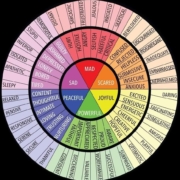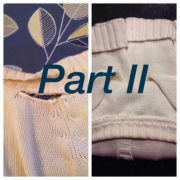Connection or protection? How are you wired? Did you know that love wires us for connection but trauma wires us for protection? Sometimes over-protection. Sometimes under-protection. Here’s how.

How are you wired?
Trauma impacts your window of tolerance, or your ability to think and feel at the same time, as well as your memory processing system. That means it is tough to self-regulate while being triggered, such as when in the midst of an argument, especially compared to someone who does not have a trauma history.
Here’s what trauma expert author Bessel van der Kolk of “The Body Keeps the Score: Brain, Mind, and Body in the Healing of Trauma” said when he put the famous interview by Oprah with Meghan and Harry into context:
“….you may feel a deep sense of threat when you get close to other people. It’s very hard to give up that hyper-alertness. It makes a person extremely cagey, careful not to be caught in the same situation ever again.”
How Are You Wired?
That is why I often end up seeing couples where one partner tends to carry more anxiety that the other. Many times an event has occurred that has triggered this anxiety. We work together to create awareness of what their attachment style looks like, their triggers, and how to tell if it is the ghosts of past trauma, or a genuine boundary concern in the moment that needs to be negotiated.
Developing a deeper understanding of your history, and it’s impact on your attachment style, will free you to deliberately detach more fluidly from your past so you can stay present with your partner or friends in this moment. This takes practice. It means strengthening your ability to separate a past trigger-reaction from actually having your boundaries tested in the present. It is quite common to confuse the two, and allow past emotions to rule in a present conflict, all subconsciously. It also requires practice to state a current boundary violation to your partner in a way that can be heard without them moving immediately into defense mode.
Please remember you are not doing this on purpose.
This is a sub-conscious operating pattern in your brain. It is your brain’s way of protecting you. However, you may be habitually using old wired-in neural pathways that worked in the past, but are no longer helpful. They, in fact, now keep you from succeeding in your relationship.
Here’s Dr. Bessel van der Kolk again:
“People’s identity is formed around questions like “What did I do wrong?” or “What could I have done differently?” That becomes the central preoccupation of their lives.”
The above refers to how a person’s attachment style is impacting their view of the situation. That is exactly why the work of therapy is to increase awareness. You increase awareness of behavioral patterns and choices that have become your sub-conscious go-to’s. If you don’t know you are behaving in ways that damage your relationships, how can you possibly stop?
The primary work of therapy is to increase your awareness.–Page Rutledge, LCSW
Creating Awareness Of Your Triggers
The goal in doing this work is to develop a higher tolerance to each other’s emotional triggers, while increasing your awareness of, and minding your own triggers. You must learn how to handle your overwhelming emotions in a different way towards each other. Conflict and ongoing stress will amplify this fact for you over and over. That is a big reason the pandemic has so deeply affected couples already showing fault lines.
Your trauma can be a strength in the relationship instead of a hindrance. After all, you have survived, and now know that you can. You have evidence! And by taking that clear evidence of the power to survive, you can learn and change how you respond to stress and conflict, channeling your power into strengthening your most important relationship.
If you want help with this, contact me here. If both partners desire improvements, it is possible to see significant progress. After a few sessions with both partners, hopefully you will begin to feel a loosening of tightness that exists in a strained relationship. If you are even contemplating this right now, go ahead and make the call. The vast majority of couples who enter therapy err on the side of starting too late when they could have avoided a great deal of pain and misunderstanding by learning how to manage conflict earlier and its often underlying causes.
Page Rutledge, LCSW, is a couples and anxiety therapist living and working in Wilmington, NC. She is used to waking to birdsong and starts singing herself after the second cup of tea.











